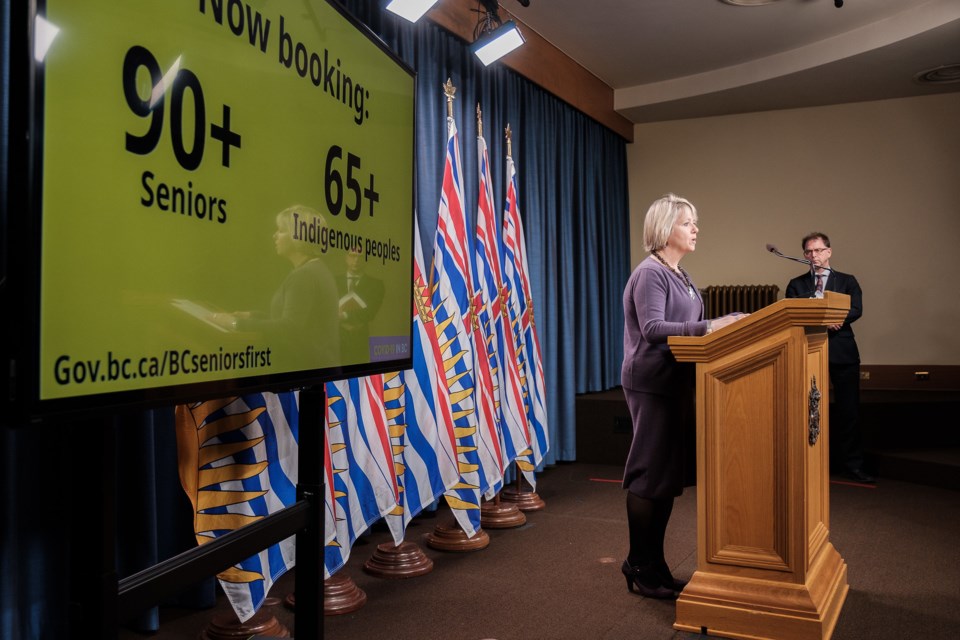B.C.’s schools will look “much more normal” by September as the province returns to post-pandemic life, provincial health officer Dr. Bonnie Henry said Monday.
Henry, at her regular March 8 briefing, said the province’s will help return some normalcy to the lives of children and teens – even those who are too young to be vaccinated themselves.
She noted the Moderna vaccine is currently approved for people down to age 16, and teenagers with certain medical conditions are already included in B.C.’s vaccine program for the “clinically extremely vulnerable.”
Henry said a return to normalcy for all young people will happen “if we can get enough of our adult population in those high-risk settings under control, so making sure that we protect the adults in the school system, and that we have some measures in place to reduce transmission in schools. …
“I can say with some confidence that will look much more normal by next September because the risks in our community will be decreased by the immunization program.”
A wider vaccine rollout for more young people will require more study, she noted, and it’s likely to be the end of the year before the necessary data around vaccination in younger people is available.
CHILDREN'S RISK REMAINS LOWER
In the interim, however, Henry said there’s more “leeway” in allowing even unvaccinated children to return to activities because, for the most part, they don’t suffer as severe illness from the COVID-19 virus and their risk remains lower.
“I’m not saying no risk. We know that some children do have severe disease; we know that some of them end up with long-term complications,” she said.
“What we need to do, and the aim of the program, is to reduce the amount of transmission in our communities so we can have all our activities safely come back to normal-ish.
“I say that because it’s likely we’re going to be dealing with this virus for many, many more months, even years.”
Henry said the provincial strategy to target prevention of hospitalizations and deaths from COVID-19 will help to manage the pandemic and get the province back to more normal activities again.
“We will still be doing some things. There will still be some times during the respiratory season where we’ll need to wear masks in certain situations, reduce our crowding, particularly if we’re somebody who is at risk,” she said, likening it to the way we currently live with the influenza virus.
“And of course, we’ll never have to stop washing our hands.”
Follow Julie MacLellan on Twitter .
Email Julie, [email protected].

